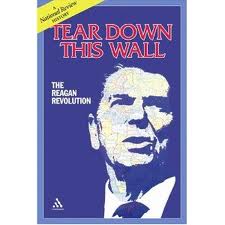Editor's note: Due to technical difficulties with the blog, many redefinED readers were unable to read this post when it was originally published Friday. Thanks to those of you who notified us. Thanks to all for your patience.
 It’s old news that many religious schools teach creationism and intelligent design – and that some of those schools accept students with vouchers and tax credit scholarships. But the recent New York Times piece on tax credit scholarships gave school choice critics fresh excuse to pick up and hurl. Teachers union president Randi Weingarten immediately tweeted, “Public money being funneled to creationist, anti-science religious schools.” A few days later, a left-of-center think tank in North Carolina, out to stop a legislative proposal for tax credit scholarships in that state, described the Times story as concluding that “redirected public money” is being used to “spread fundamentalist religious theology like creationism.”
It’s old news that many religious schools teach creationism and intelligent design – and that some of those schools accept students with vouchers and tax credit scholarships. But the recent New York Times piece on tax credit scholarships gave school choice critics fresh excuse to pick up and hurl. Teachers union president Randi Weingarten immediately tweeted, “Public money being funneled to creationist, anti-science religious schools.” A few days later, a left-of-center think tank in North Carolina, out to stop a legislative proposal for tax credit scholarships in that state, described the Times story as concluding that “redirected public money” is being used to “spread fundamentalist religious theology like creationism.”
I’m in the science tribe. The evolution-is-fact tribe. But I don’t share their outrage. During my own evolution on school choice, I’ve had to grapple with the fact that many private schools are at odds with what the vast majority of scientists consider good science.
I’ve come to this conclusion: Even if we disagree about creationism, we shouldn’t be so blinded that we forget all the other lessons these children receive in all the other classes they take, in all the years they attend school. We should not overlook whether these children are learning to read and write and succeed in life. I'm hoping that people who do value scientific literacy would be more likely to look at the issue with a sober analytical eye. I’m hoping they might even be willing to place scientific learning in a broader societal context, where many public school students are suffering in part because they lack the foundational learning skills that also handicap them in the arena of science.
The fact is, not many traditional public school students are doing well right now in science. It pains me to say this, because I had amazing biology, chemistry and physics teachers in my public high school. What I learned from them has benefited me personally and professionally. But the facts are informative. In 2009, 21 percent of high school seniors scored at proficient or above on the National Assessment of Educational Progress in science. Break those numbers down into subgroups, and depressing morphs into apocalyptic. Only 8 percent of low-income and Hispanic students reached that bar. Only 4 percent of black students did.
In Florida, the state I know best, only 27 percent of low-income students scored at grade level or above on the state’s high school science test in 2011. To be fair, that’s up from 19 percent in 2006 – and many talented people worked hard to move the needle even that much. But it’s nowhere near high enough or fast enough. (more…)
 Nobody invoked Ronald Reagan this week and demanded that somebody (Randi Weingarten? President Obama? The local school board?) “tear down this wall,” but two school choice champions got close. Step Up for Students President Doug Tuthill used the Berlin Wall analogy yesterday in a redefinED post about the big-picture trends in ed reform. And in a beautiful coincidence, Robert Enlow, president and CEO of the Friedman Foundation for Educational Choice, did so today in an op-ed for CNN.
Nobody invoked Ronald Reagan this week and demanded that somebody (Randi Weingarten? President Obama? The local school board?) “tear down this wall,” but two school choice champions got close. Step Up for Students President Doug Tuthill used the Berlin Wall analogy yesterday in a redefinED post about the big-picture trends in ed reform. And in a beautiful coincidence, Robert Enlow, president and CEO of the Friedman Foundation for Educational Choice, did so today in an op-ed for CNN.
Wrote Enlow: “Just like the millions of East Germans who demanded freedom, we know that there are millions of parents that want to be removed from a system that uses a zip code to determine where their children must attend school.” He concluded, “Vouchers should be made available to children no matter if they are poor, disabled, from the middle class or from a family of 10, or from a rural, suburban or urban area. There should be no restrictions on who gets to choose, just like there were no restrictions on who could escape tyranny once the Berlin Wall fell.”
Also by coincidence, one of the nation’s biggest pollinators for school choice, Jeb Bush, delivered an ed reform speech in Colorado this week. He didn’t explicitly urge anyone to tear down any walls, either, but according to Education News Colorado he did implore the audience of 1,700 to “join reformers to make school choice both public and private the norm in our country."
Hmmm. Anyone else see speech potential here? Tampa. August. Fired-up delegates shouting "Tear down this wall!" as millions watch ...